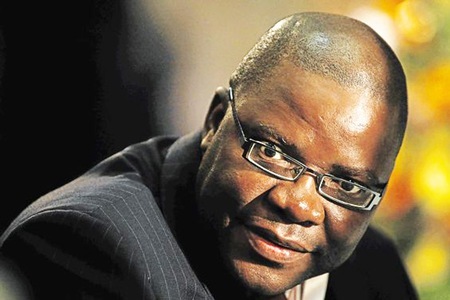
FINANCE minister Tendai Biti presents the last national budget of the inclusive government on Thursday, amid expectations he would provide the stimulus needed for the manufacturing sector that has recorded a dip in capacity utilisation.
REPORT BY NDAMU SANDU
A survey released by the Confederation of Zimbabwe Industries (CZI) last week showed that for the first time since the use of multi-currencies, capacity utilisation had gone down to 44,2% from the 57,2% recorded last year, painting a gloomy picture in the outlook.
The survey came after Biti had cut projected growth for this year to 4% from an earlier forecast of 5,6%.
Analysts said last week, the dip in capacity utilisation should jolt government into action to introduce policies that help revive the industry.
James Wadi, chief economist at regional banking group BancABC, told Standardbusiness the budget should provide ways to revive the manufacturing industry, “given what it has said”.
He said while industry required money, some of its requirements were non-monetary, such as the provision of an environment conducive to attract investors.
Wadi said government had to honour Bilateral Investment Promotion and Protection Agreements (Bippas), so as to unlock the external lines of credit needed to boost the economy.
- Chamisa under fire over US$120K donation
- Mavhunga puts DeMbare into Chibuku quarterfinals
- Pension funds bet on Cabora Bassa oilfields
- Councils defy govt fire tender directive
Keep Reading
“We have to honour that and the moment we start acting otherwise it sends wrong signals to investors,” he said.
The local manufacturing sector is beset by a string of challenges, notably power outages and ageing equipment that has pushed up the cost of production, meaning local products are more expensive compared to imports.
Zimbabwe has become a supermarket economy, with imports flooding the shops.
Exports for most commodities have been reduced and as a result, the economy is not generating foreign currency receipts.
Regrettably, imports continue to increase thereby widening the trade gap. The little money generated locally would go to imports, starving other sectors of the economy of funding needed for revival.
Reserve Bank of Zimbabwe governor Gideon Gono told the banking sector’s stakeholders last week that improved export capabilities required that the country’s investment image be improved.
“This remains key in the meaningful attraction of both domestic and foreign direct investment into key productive and export sectors of the economy in a manner that improves the competitiveness of domestically produced goods and services,” Gono said.
Gono said the “country’s import dependency syndrome must be shed off through the implementation of comprehensive structural policies that promote the resuscitation of domestic industrial production”.
“This would assist in bridging attendant supply gaps that have sustained the importation of finished goods largely from South Africa and the Far East,” Gono said.
Biti has in the past indicated that he would increase some taxes as way of generating more revenue.
However, analysts say, there are some low-hanging fruits that can be harnessed to raise more revenue for the economy. “We have porous borders and why should we not automate?” Wadi asked, adding that the same could be done on tollgates.
He said automation would remove the human intervention and there was an assurance that the money would come.
In its submissions, CZI said there were high levels of corruption at border posts, especially at Beitbridge and the long transit times spent obtained a hamstrung to trade.
Wadi said such a mismatch was not unique to Zimbabwe but obtains in other countries in the region. However, Wadi said other countries had managed to raise offshore financing for infrastructure.











